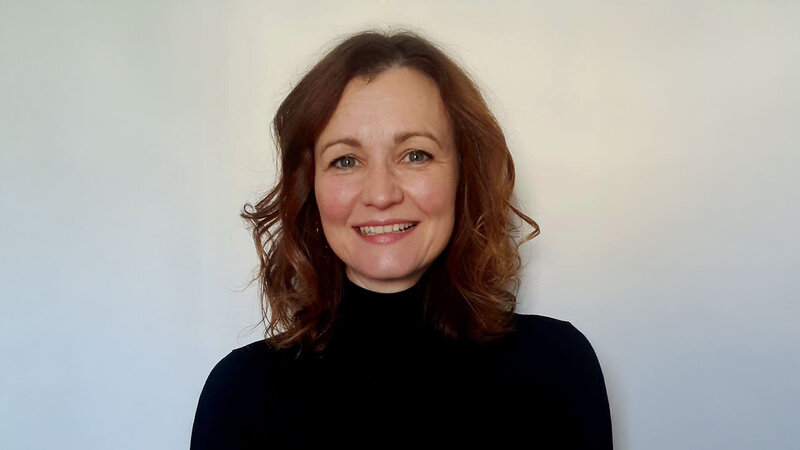You are viewing your 1 free article this month. Login to read more articles.
Tracking positive progress for disabled people across the publishing industry
Steps have been taken to improve access to the publishing industry for those with disabilities—but how can workplaces be more inclusive and welcoming?
There is no denying that there is a long way to go for disability support in publishing, but in recent years, improving accessibility and inclusivity has become a priority for many publishing houses. With the recent launch of the Inklusion Guide, which aims to improve access to literary events for disabled people, it feels like the tide is turning.
Support for employees
Following the pandemic, flexible policies have been updated and improved. Policies that benefit all staff, regardless of whether they have a disability, were seen as particularly effective.One employee at Faber said her employer had been great, “primarily because of the flexibility that’s already in place for all employees, which means my access needs don’t stick out as much”.
Similarly, an entry-level employee at Penguin Random House said she was particularly impressed with the flexible working policies at the company, which is currently trialling a hybrid model. Teams can decide on their own working patterns, and in her team, she can work fully from home or cancel planned office days last-minute if needed, which “is really helpful with conserving energy on bad days/weeks, and allows me to still work if my disability is impacting me more on certain days[…] We’re also not made to feel bad about not coming into the office, so there’s way less pressure and stress.”
She also mentioned the Tailored Adjustments Plan at PRH, which is a structured process by which staff can discuss adjustments with their manager. “This is given to HR for your records and it then follows you. So if you move roles or departments, or get a new manager, it can be shared (with your consent) with your new manager.”
A few publishers, including PRH and HarperCollins, are Disability Confident Employers under the government scheme, with Hachette aiming to become one in the next 12–18 months. Publishers are also starting to track data to assess their progress
According to Zaahida Nabagereka, head of social impact at PRH, the Business Disability Forum does training for its staff to support this structured process. Currently, HR and all people managers take part in this disability-specific training, with plans to roll this out to facilities and technology teams soon too.
A few publishers, including PRH and HarperCollins, are Disability Confident Employers under the government scheme, with Hachette aiming to become one in the next 12–18 months. Publishers are also starting to track data to assess their progress. PRH, for instance, carries out audits of its staff to assess both the representation of different demographics in the company, and also their sense of belonging. Hachette has carried out a similar census, and both PRH and Hachette gather data on the demographics of candidates who apply for jobs, including those who are shortlisted. Hachette has also started to monitor data relating to retention and progression, to track any discrepancies between different groups.
Staff networks
Disability-specific staff networks have been formed at many publishing houses over the past few years, including at Bloomsbury, Hachette, PRH and Bonnier. These are often focused on supporting and connecting disabled colleagues, but they also often provide an opportunity to suggest new initiatives.
PRH’s AccessAbility is an employee network with direct access to key decision-makers; representatives from all the networks across the company come together as part of its Inclusion Action Group, which gathers feedback and influences policy. The representatives and the chairs of these networks all get paid extra for these roles.
Similarly, according to Kim Kidd, diversity and inclusion manager at Hachette, “the disability network committee members [at Hachette] are volunteers, but the network co-chairs do get a bonus”. The network there also aims to influence company policy, but alongside this it carries out charity work, including partnering with Mencap and Carers UK, and has been instrumental in Hachette’s agreements with audio charity Calibre and the Royal National Institute of Blind People.
Lily Bowden from Jessica Kingsley Publishers, which is part of Hachette, expanded on this, explaining the list has “partnered with the British Dyslexia Association to create the first set of guidelines for producing dyslexia-friendly texts and workplaces, which have since been rolled out across Hachette. As a result, Hachette is the first publisher to receive the BDA Smart Award. We are looking to create guidelines for ADHD-friendly texts this year too.”
Authors on board
Although a lot of progress has been made for employees, there is still room for improvement for authors, who aren’t supported by the same structured processes as employees.
According to Kidd, Hachette has recently introduced “ability-conscious contracting guidelines for author agreements, which recognises that authors with a disability may need to take a rest period, in relation to reasonable adjustments. This is reflected in the author’s contract—in their delivery date and their PR commitments. So there is a framework, but
it’s flexible and on a case-by-case basis.”
PRH is actively looking at ways to improve support for disabled authors, including introducing training for editors. It also runs the WriteNow programme, “which aims to find, nurture and publish new writers from communities underrepresented on the nation’s bookshelves”
Many independent presses have also had successes with supporting authors. Ely Percy, author of Duck Feet, has been impressed with the support from Knight Errant Press. In particular, it was helpful that the publisher kept email communication clear and concise, and supported Percy with travel—for instance, by accompanying them on tour. Penny Batchelor, author of My Perfect Sister and Her New Best Friend, said that Orenda and Bluemoose “are very on-the-ball and always willing to learn”. She was also impressed with the support at her publisher RedDoor Press with accommodating her adjustments. As she said, “it would be great if straight away publishers asked everyone if they have any access needs... That way it’s not up to the disabled person to put their hand up first!”
PRH is actively looking at ways to improve support for disabled authors, including introducing training for editors. It also runs the WriteNow programme, “which aims to find, nurture and publish new writers from communities underrepresented on the nation’s bookshelves.” According to Meredith Adams, PRH’s social impact and sustainability manager, “48% of people who come through WriteNow identify as disabled”.
Alongside being a key partner for the Inklusion Guide, PRH has also introduced “an accessibility questionnaire which [the events teams] send to all venues before we agree to work with them, which asks about things like wheelchair accessibility, provision of BSL or speech-text interpretation, if the [venue] has hearing loop systems, those kinds of things.” If a venue doesn’t meet PRH’s accessibility requirements, it won’t work with them.
Conclusion
Huge steps forward are being made to improve conditions for disabled people in the industry, though publishers acknowledge they are at the start of a long journey. With these new policies in place, and many more in progress, there is definitely hope for a more accessible and inclusive future for the industry.
Cat Mitchell is a lecturer in publishing and the programme leader for the Creative Writing and Publishing BA at the University of Derby. She is researching disability in publishing, and in 2021 published the Access Denied report, which investigated barriers for disabled job-seekers and employees in the industry.














